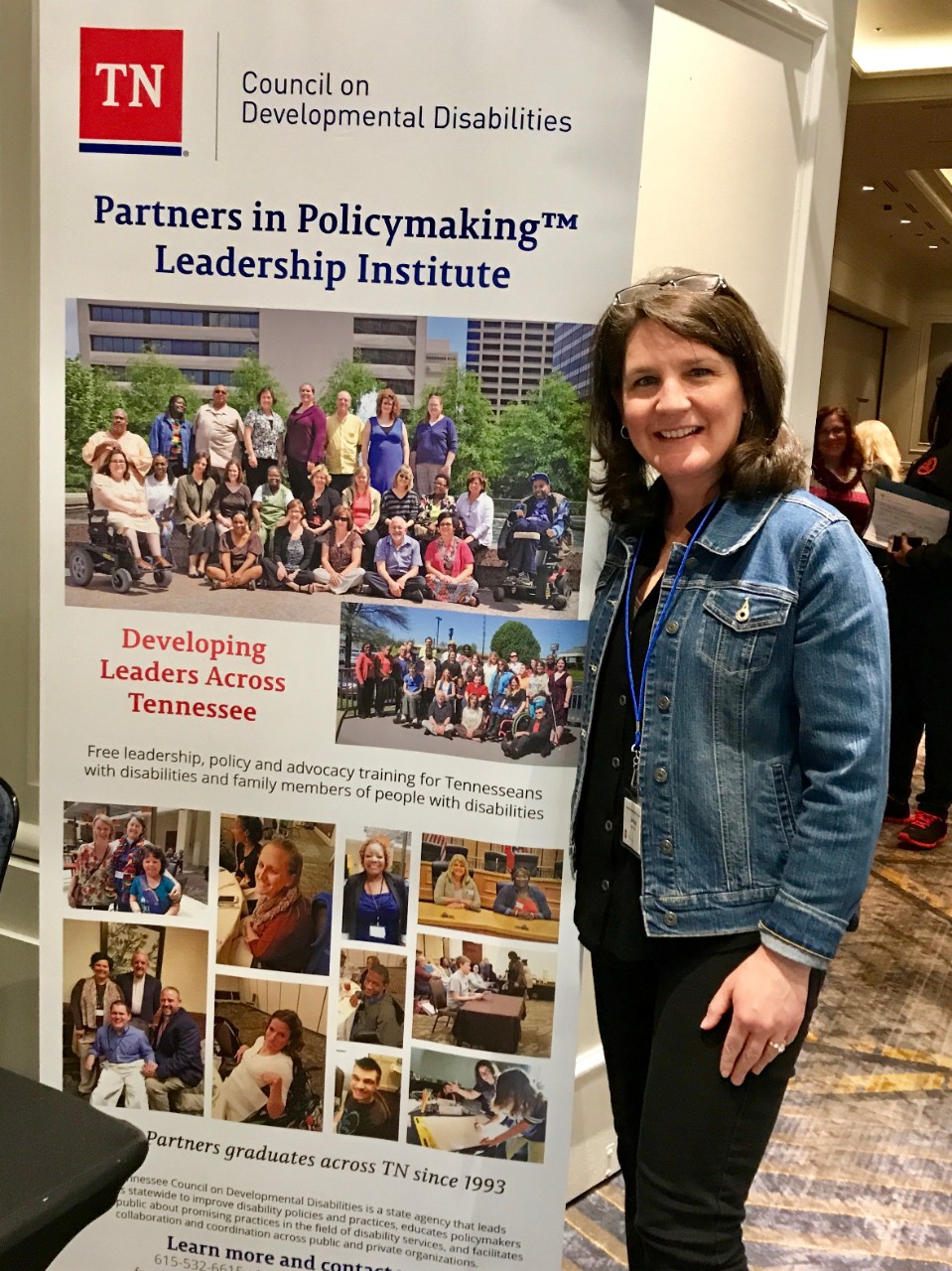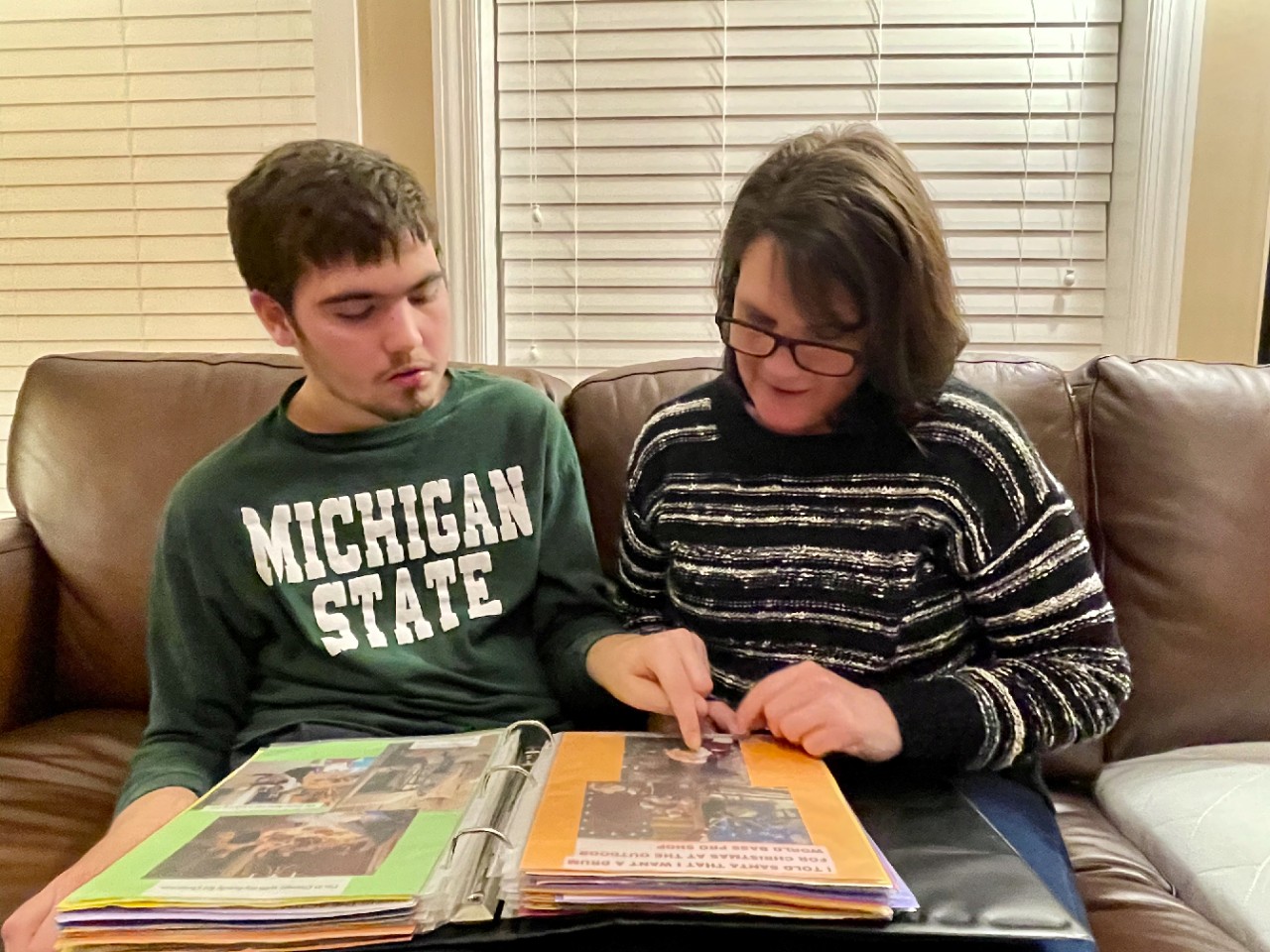Personal Perspective: Finding My Path and Paying it Forward
By Jen Vogus, 2007 Partners in Policymaking® graduate

When I began the Partners in Policymaking® leadership program in September 2006, I didn’t know what I didn’t know. I was a first-time mom of a four-year-old child with both physical and developmental disabilities and an uncontrolled seizure disorder, all of unknown origin. My days were filled with uncertainty and fear. Uncertainty about my son Aidan’s health and future. And fear based in my limited experiences with disability.
Like many people of my generation, I grew up in a world where the default was to segregate children and adults with disability. There was little inclusion in schools or throughout the community. With my son’s diagnoses, I was consumed by seemingly unanswerable questions: How will Aidan communicate his thoughts and needs to others? Will he have friends? What doctors and service providers can help? What will Aidan’s life look like and how can it be meaningful and happy? What will happen to Aidan after my husband and I die? I was overwhelmed by it all. I was even overwhelmed by the alphabet soup of acronyms and the array of programs and services intended to help.
What Partners in Policymaking did for me is develop the understanding and provide the tools for successfully making sense of and navigating the complexity of the disability world in Tennessee. That included special education, employment, housing, civic engagement, and policy making. But Partners does so much more. It builds a real and enduring community of mutual support. That community gave me not only a network chock-full of information, but a feeling of confidence that I could make decisions to support Aidan in living his best life.
Partners also provides a spark to think and act beyond oneself or one’s family to help others in similar situations. Partners showed me that even as an individual parent, I have the power to make positive and transformational change for more than just my child. Partners helped me think through how I can be a force for positive change. That meant thinking about how I could use my new disability knowledge and advocacy skills to help others and pay the gift of Partners in Policymaking forward.
I first used these skills to help Aidan use alternate means for communicating, as his rare genetic condition prevents him from using more traditional ways, such as speaking, writing, or signing. When he started elementary school, I began taking pictures of all that he enjoyed and was capable of doing. He shared these photos across his school day, informing teachers and peers about his favorite activities, toys, and how he spends his time outside of school. These photographs opened up his world, allowing others to realize he is more alike than different from them. That helped build lasting relationships and friendships with his peers, his teachers, and even his extended family.
The great success Aidan experienced at school due to the photos led me to think about the power of photography for people with disabilities, generally. It was a gift to our family, and I wanted to share it with others. The inspiration from Partners to give back and pay it forward led me to combine my teaching and photography skills. I developed a curriculum for teaching people with disabilities photography so they can share their stories and lives through the photos they take. These stories can be tools of advocacy and break down boundaries between people, just like the photos Aidan took to school did.
In 2019, I founded AbleVoices, a nonprofit organization whose mission is to amplify the voices of youth and adults with disabilities through the powerful medium of photography and foster more inclusive communities. Our flagship program, Photography for Self-Expression, teaches photography as a means for self-expression, empowerment, and disability advocacy in local schools, community organizations, and also virtually. We also offer a year-round photography club where we explore and photograph scenic locations throughout Middle Tennessee.
What is next for AbleVoices? We are excited to build on these offerings to push things even further. We are rolling out a new work-based learning program, thanks to generous funding from the Jackson Foundation. We are creating a structured training and sustainable photo-based production program for AbleVoices photographers. These products will be for sale on our website and at local markets, fairs, and retail stores.
My call to action is that we all use Partners to help ourselves, our families, and our students. But we should also use it as an opportunity to reflect on what we might uniquely offer to make our communities and our world more welcoming and inclusive for people with disabilities.
To learn more, please visit ablevoices.org and follow AbleVoices on Facebook, Instagram, LinkedIn, and You-Tube (@ablevoices). Youth and adults with disabilities, as well as volunteers, can get involved by emailing info@ablevoices.org.
AbleVoices also has 16 AbleVoices photographer prints on exhibit now through April 1, 2024, at the Frist Art Museum. This collection is part of the “Power of Resilience” exhibit, showcasing the work created by more than 80 adult artists with disabilities. Stop by this free exhibit before it ends. You will not be disappointed!
Jen Vogus is a Class of 2007 Partners in Policymaking alum, founder and executive director of the nonprofit organization AbleVoices, and parent of two children, Aidan and Eleanor.
